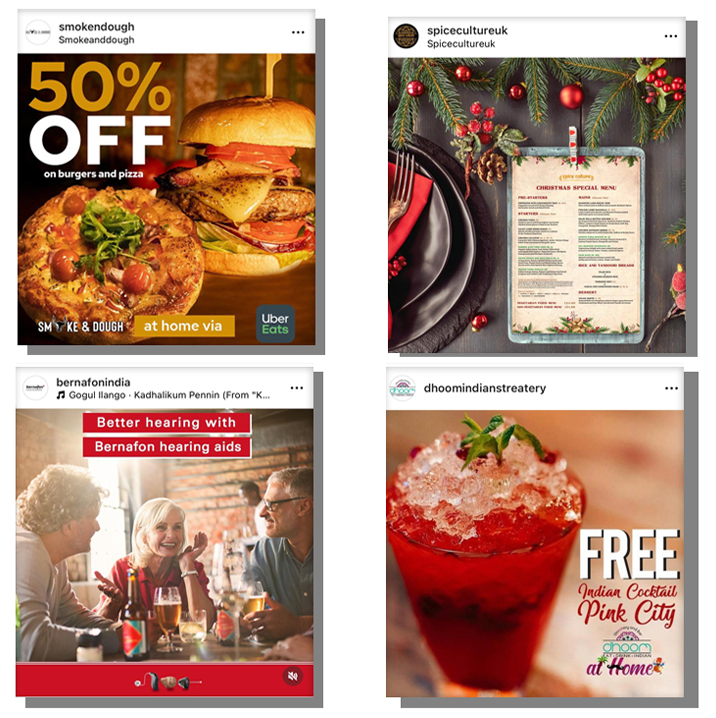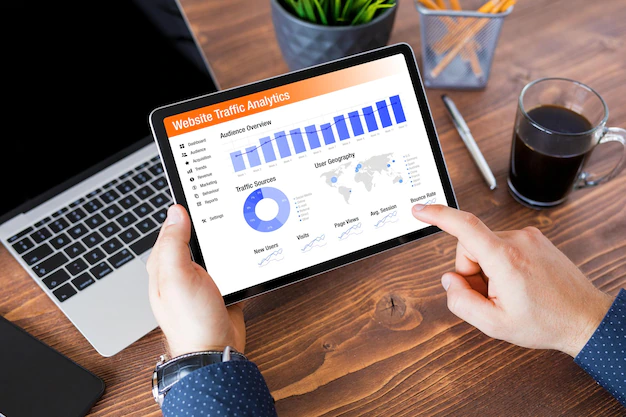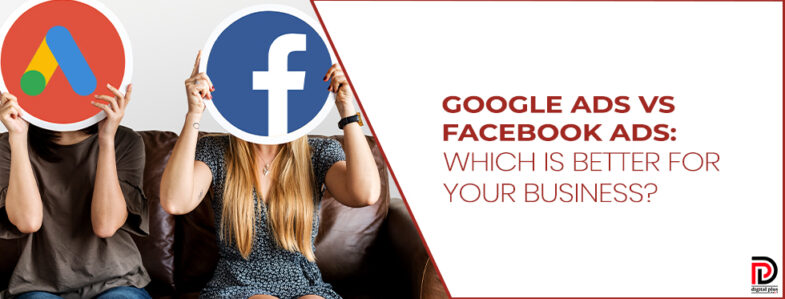Google Ads vs Facebook Ads: Which is Better for Your Business? -
Google Ads vs Facebook Ads: Which is Better for Your Business?
Online advertising is one of the best ways to grow your business. Two of the biggest platforms for online ads are Google Ads and Facebook Ads. Google Ads work on a pay-per-click (PPC) model, meaning businesses pay when someone clicks on their ad. These ads appear on Google search results, YouTube, and other partner websites.
Online advertising is one of the best ways to grow your business. Two of the biggest platforms for online ads are Google Ads and Facebook Ads. Google Ads work on a pay-per-click (PPC) model, meaning businesses pay when someone clicks on their ad. These ads appear on Google search results, YouTube, and other partner websites.
Google Ads vs Facebook Ads:

Audience Targeting
One of the biggest differences between Google Ads and Facebook Ads is how they target users. Google Ads focus on people who are actively searching for specific products or services using keywords. This means that businesses can reach potential customers who already have an intent to purchase. For example, if someone searches for “best buffet restaurants in London” Google Ads will show them relevant ads from restaurants promoting their menus, special offers, or dining experiences.
On the other hand, Facebook Ads target users based on their interests, demographics, and online behaviour. Instead of waiting for users to search, Facebook proactively displays ads in their feed based on their browsing history, likes, and engagement. This makes Facebook Ads ideal for brand awareness, engagement, and impulse purchases, as users may not be actively looking for a product but could still be interested if it aligns with their preferences.

Ad Format
Google Ads are primarily text-based in search results, but they also include Display Ads (banners on websites), Shopping Ads (product listings), and Video Ads (YouTube). These ad formats work best for businesses looking to capture high-intent users and drive direct conversions.
Facebook Ads, on the other hand, are much more visually immersive. They include Image Ads, Video Ads, Carousel Ads (multiple images/videos in one ad), Collection Ads (mobile-friendly shopping experience), and Story/Reels Ads (full-screen vertical videos). These formats blend seamlessly into the user’s social media experience and are excellent for brand storytelling and engagement.

Cost & Budgeting
As of 2025, the cost-per-click (CPC) on Google Ads in the UK varies between £0.09 and £0.40 for most industries, but in competitive sectors like law and finance, it can exceed £40 per click. Facebook Ads tend to be more affordable, with an average CPC of £0.20 to £0.24 and a cost per thousand impressions (CPM) between £0.80 and £2.40.
For budget allocation, if your goal is to capture high-intent users actively searching for a product/service, you should allocate 60-70% of your budget to Google Ads. However, if you’re focusing on brand awareness and engagement, then Facebook Ads should get 60-70% of your budget.

Best for Different Business Goals
Google Ads is the best choice for lead generation, especially for industries like law, real estate, and finance, where people actively search for services. Facebook Ads, on the other hand, excel in brand awareness and engagement, making them ideal for businesses in fashion, food, and lifestyle that rely on visually appealing content. For e-commerce and immediate sales, a combination of Google Shopping Ads and Facebook Retargeting works best—Google captures high-intent shoppers, while Facebook re-engages those who have interacted with your brand. If you’re promoting a local business, such as a cafe or gym, Facebook Ads are more effective due to their precise location-based targeting and community engagement features.

Conversion Speed & Buyer Journey
One crucial factor that many businesses overlook is the conversion speed associated with each advertising platform. Google Ads often lead to faster conversions because they target users who are actively searching for specific products or services. For instance, if someone in the UK searches for “best Indian restaurant in Harrogate,” they are likely looking for a place to dine and ready to make a decision. This high intent makes Google Ads particularly effective for businesses aiming for quick sales and high-intent leads.
In contrast, Facebook Ads are more suited for long-term brand building. They target users based on interests and demographics rather than explicit search intent, which means it may take multiple interactions before a user decides to purchase. Facebook Ads excel at introducing new products, retargeting past visitors, and building customer loyalty over time. Since users aren’t actively searching for a product when they see a Facebook Ad, repeated exposure is often necessary to drive conversions. This is where Facebook Retargeting Ads become highly effective—they remind users about products they’ve previously viewed or engaged with, thereby increasing the likelihood of conversion.
Final Verdict
In this article, we have briefly discussed Google Ads vs Facebook Ads: Which is Better for Your Business?, and we hope you got what you came for.
Both Google Ads and Facebook Ads offer unique advantages, and the best choice depends on your business goals. Google Ads are ideal for capturing high-intent customers who are actively searching for products or services, making them perfect for quick conversions and lead generation. On the other hand, Facebook Ads excel at building brand awareness, engaging potential customers, and nurturing long-term relationships through visually appealing content and targeted campaigns.
For the best results, businesses should consider using a combination of both platforms. Google Ads can drive immediate sales, while Facebook Ads can help keep your brand top-of-mind and attract new audiences.
At Digital plus 24×7, we have a team of professional experts who can help you to your unique business needs, helping you achieve unbeatable results in the market. Contact DigitalPlus24x7 today to learn how we can help you boost your online presence and grow your business through Google Ads and Facebook Ads.


